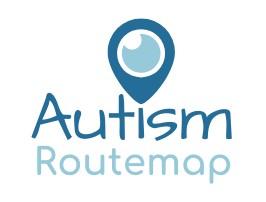Much more than coffee

I love to visit a particular coffee shop near me. They serve heavenly cappuccinos which are the perfect antidote to a cold winter’s day. But it’s not just good beans that makes this coffee memorable …
I first visited the coffee shop on the day that my daughter started secondary school. We were new to the area and feeling very vulnerable in the face of so much unfamiliarity. First day jitters were having a field day. As it was still early, I suggested that we go into the café for a quick bite. No-one had had the stomach for breakfast that morning and for some reason, us mothers always feel better when our children have eaten!
Noticing that my daughter hadn’t touched her food, the owner approached and asked if he could make her something else. Not wanting to offend him, I explained that it was nerves, and not his sandwich, that was the guilty party. He lingered for a while, asking a few questions and reminiscing about his son’s time at school. Although I don’t recall exactly what he said, I do recall how he made us feel. Instead of being embarrassed about wasting a plate of food, his kindness left us feeling validated and uplifted.
Empathic listening is the ability to tune in to the emotional state of the person you are talking to. It involves understanding their perspective and making them feel like the most important person in the room. The owner of the coffee shop could so easily have been insulted by our uneaten food had he not taken the time to look below the surface.
Empathic listening means acknowledging emotions such as frustration or sadness by saying things like, “That must have been really hard for you” or “I can see that made you upset.” This validates the person and makes them feel understood.
Empathic listening means accepting that the other person has a valid point of view even if it conflicts with your way of thinking. Comments like, “That’s a good point” or “I hear what you’re saying”, enable you to hold to your convictions whilst still making the other person feel heard.
Empathic listening does not jump to a solution or try to stop the other person from being negative. We are so conditioned to the idea that “happy” is the only acceptable setting on the emotional dial. So instead of pointing out the silver lining, give them the space they need to process their feelings. It’s only once this has happened, that a person can truly move forwards.
Empathic listening doesn’t involve explanations. I am guilty as charged here! I often try to explain why something has happened in an attempt to make the other person feel better. But that doesn’t allow the necessary first stage – which is for emotions to be processed. Skipping this part, is like trying to eat meat before you have cooked it.
Once a person’s feelings have been acknowledged, they will be in a position to hear what comes next - whether that be your perspective, a solution, a distraction or an explanation.
Feeling heard lifts our souls to another level. It is in this space, that we let go of the need to defend our position or to try and manhandle the other person’s perspective until it matches our own. It is here that we can embrace the new and move on mentally.
William Ury, American author and global negotiation expert says, “one of the biggest gifts we can give anyone is the gift of being heard”. It's priceless and yet it doesn't cost a thing.
And if you’re wondering about that coffee shop, you can find “Epicure” in the Hertfordshire town of Berkhamsted.
To being the giver of one of life’s greatest gifts!
Linda Philips
MSc. Human Communication
Autism Routemap supports autistic and neurodiverse people with coaching and training to improve communication, interaction, and emotional regulation skills. Interested in knowing how we can help?
Contact [email protected] or book a free Turning Point call here.

